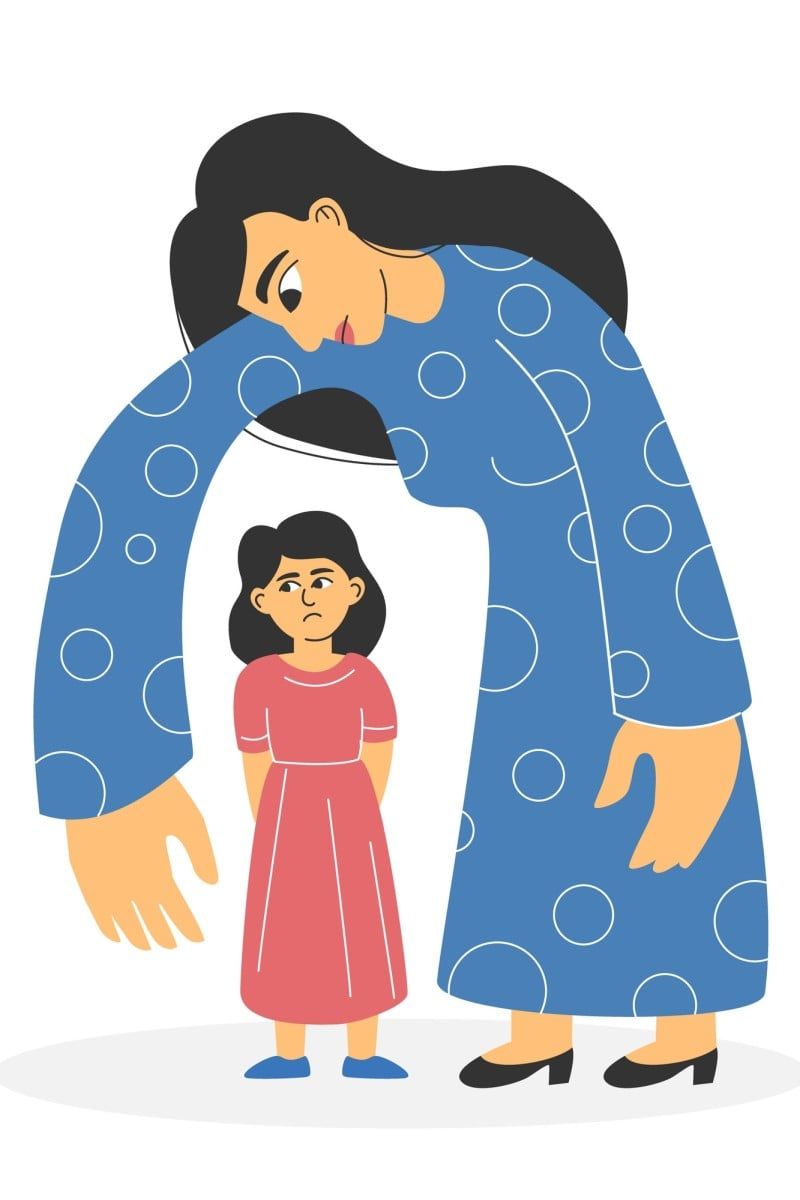In today’s rapidly changing world, the younger generation is often perceived as more sensitive and fragile than ever.
This perception is shaped by a multitude of factors ranging from parenting styles to technological advancements.
In this blog post, we’ll explore 15 key reasons behind this sensitivity and fragility, examining how societal shifts and cultural changes contribute to this phenomenon.
1. Overprotective Parenting (“Helicopter Parenting”)
Overprotective parenting, often termed “helicopter parenting,” involves parents who hover over their children, shielding them from challenges and failures. This protective behavior can hinder the development of resilience and self-reliance in children.
As these young individuals grow, they may struggle to cope with real-world challenges, having been sheltered from adversity. Such parenting styles create a safety net that prevents kids from experiencing the valuable lessons failure provides.
Ultimately, these children might become adults who find it difficult to deal with setbacks, having been accustomed to constant support and intervention.
2. Participation Trophy Culture
Participation trophy culture has become prevalent, where effort is often rewarded over actual achievement. This practice aims to boost self-esteem but might inadvertently teach children that simply showing up is enough.
As a result, the value of hard work and striving for excellence can be diminished, leading to unrealistic expectations in adulthood. Children may grow up with a sense of entitlement, expecting recognition without significant accomplishment.
Such a mindset can lead to disappointment and frustration when faced with the realities of a competitive world that values merit and achievement.
3. Social Media & Online Validation
The rise of social media has amplified the need for validation through likes, comments, and shares. Young people are increasingly reliant on online approval to feel valued and accepted.
This constant quest for validation can lead to feelings of inadequacy and anxiety when expectations aren’t met. The curated nature of social media profiles often sets unrealistic standards of success and happiness.
Over time, this reliance on online validation may affect self-esteem, making individuals more vulnerable to criticism and less resilient to face real-world challenges and interactions.
4. Cancel Culture & Outrage Cycles
Cancel culture and outrage cycles have created an environment where people fear being criticized or “canceled” for their opinions. This fear stifles open dialogue and may lead to self-censorship.
The pressure to conform to popular opinion can inhibit personal expression and discourage individuals from exploring diverse perspectives. As a result, many avoid engaging in meaningful discussions to sidestep potential backlash.
Such an environment can make individuals more sensitive to criticism, as they constantly navigate social situations with caution, fearing repercussions for their words or actions.
5. Lack of Free-Range Play
Free-range play, once a staple of childhood, has diminished significantly. Children today spend less time engaged in unstructured outdoor play, which fosters independence and risk-taking.
This decline limits opportunities for children to learn problem-solving skills and develop resilience through firsthand experiences. Without the challenge of navigating social interactions, they may become more reliant on adult intervention.
The absence of free-range play can contribute to a generation less equipped to handle risks and unfamiliar situations, potentially making them more sensitive to the uncertainties of life.
6. Overemphasis on Feelings Over Facts
In recent years, there has been a shift towards prioritizing feelings over objective discussions. While understanding emotions is important, it can sometimes overshadow the need for factual analysis.
This shift can create environments where emotions dictate outcomes, leading to decisions based on personal feelings rather than evidence. As a result, critical thinking and analytical skills may be undervalued.
When faced with challenging situations, individuals accustomed to this approach might struggle to engage in objective debates, potentially making them more sensitive to differing opinions and confrontations.
7. Declining Mental Resilience Training
The decline in mental resilience training means fewer opportunities for young people to develop toughness. In a world where challenges are often minimized, building mental strength can become difficult.
Without experiencing adversity, individuals may find it challenging to navigate difficulties, relying instead on external support. This lack of resilience can result in increased sensitivity and vulnerability.
Encouraging environments that challenge and push individuals out of their comfort zones can aid in building the mental toughness needed to tackle life’s hurdles with confidence and determination.
8. Instant Gratification Society
Our society’s focus on instant gratification means everything is available at the touch of a button. This convenience reduces patience and perseverance, as waiting becomes a thing of the past.
When rewards come quickly and easily, the effort required for long-term goals can seem daunting. This shift in mindset can lead to frustration when instant results aren’t achievable.
The lack of patience cultivated by instant gratification may contribute to a generation less prepared to endure the slow and steady journey required for substantial accomplishments.
9. Fear of Conflict & Discomfort
The fear of conflict and discomfort has led to a reluctance to engage in opposing views. Many prefer to avoid confrontation, seeking comfort in harmony and agreement.
This aversion can hinder personal growth, as encountering different perspectives is crucial for developing understanding and empathy. Avoiding conflict can result in a lack of resilience when faced with challenging situations.
By embracing discomfort and learning to navigate conflicts, individuals can build strength and adaptability, becoming more equipped to handle the diverse views and experiences they encounter in life.
10. Educational System Shifts
The educational system has shifted towards prioritizing emotional safety, often at the expense of intellectual challenge. While it’s important to nurture students’ well-being, this focus can sometimes limit their academic growth.
Students may miss opportunities to engage in rigorous debate and critical thinking, skills essential for navigating complex issues. The emphasis on safety can reduce exposure to challenging ideas and diverse perspectives.
In the long run, this approach may lead to a more fragile generation, less prepared to face intellectual challenges head-on and more sensitive to the demands of an ever-changing world.
11. Less Unstructured Social Interaction
With the rise of digital communication, face-to-face social interactions have diminished. Young people increasingly engage through screens, which can limit their ability to resolve conflicts in person.
Lacking unstructured social interaction, individuals might miss out on developing essential interpersonal skills, such as empathy and negotiation. This digital reliance can create barriers to understanding different perspectives.
As a result, they may find it challenging to navigate real-world relationships, leading to heightened sensitivity and fragility when confronted with in-person conflicts and misunderstandings.
12. Cultural Shift Toward Hyper-Sensitivity
There has been a cultural shift towards hyper-sensitivity, with increased focus on microaggressions and political correctness. This shift encourages awareness but can also lead to heightened sensitivity.
While addressing harmful behaviors is important, an overemphasis on sensitivity can create environments where open dialogue is stifled. Fear of offending can inhibit genuine conversations and limit diverse viewpoints.
Balancing sensitivity with open communication is key to fostering understanding and resilience, helping individuals navigate complex social landscapes without becoming overwhelmed by perceived slights or misunderstandings.
13. More Parental Intervention in Problems
Parental intervention in children’s problems has increased, often resolving conflicts on their behalf. While well-intentioned, this can prevent children from developing problem-solving skills.
When parents consistently step in, children may become reliant on external support, lacking the confidence to navigate challenges independently. This can lead to a fragile sense of self-efficacy.
Encouraging children to resolve conflicts on their own can promote resilience and independence, equipping them with the tools needed to handle adversities and navigate interpersonal dynamics effectively.
14. Over-Reliance on Technology
The over-reliance on technology has reduced opportunities for real-world problem-solving and critical thinking. Digital tools often provide instant solutions, diminishing the need to engage deeply with challenges.
This dependence can hinder the development of essential skills, such as innovation and adaptability. Individuals may become less capable of tackling problems without technological aid.
Promoting a balance between technology use and hands-on experiences can foster critical thinking and resilience, preparing individuals to face the complexities of life with confidence and creativity.
15. Lower Exposure to Hardship & Struggle
Modern conveniences have minimized exposure to hardship and struggle, creating environments where comfort is prioritized. While beneficial, this comfort can also limit the development of grit and resilience.
Without facing challenges, individuals may lack the experience needed to persevere through difficult times. This can result in a generation less equipped to handle adversity and setbacks.
Encouraging experiences that push individuals out of their comfort zones can build resilience and strength, helping them navigate life’s obstacles with tenacity and determination.















